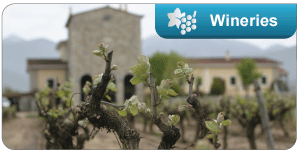The new Greek wine revival
The new Greek wine revival, as it is called by many, occurred during the last decades of the 20th century, marked by various events in both the vine growing and winemaking domains. In those days, the large winemaking concerns aside, small-to-medium size producers began to emerge. They were vertically integrated, winegrowing concerns producing wines on a limited scale from Greek as well as international grape varieties. Enthusiastic vintners, numbering many oenologists in their ranks, cultivated their vineyards with dedication and vinified with a view to a broad market either by continuing the cultivation of and reviving the historic vineyards of Greece or by planting new ones. In the meantime, the return of hundreds of Greek oenologists who were graduates of European–mainly French- or other foreign universities; the graduates emerging from the newly established Department of Oenology and Beverage Technology at the Athens TEI; and the graduates of Greek universities specializing in Viticulture and Oenology, would join forces to bolster the country scientifically. Together, this committed group would steer production towards taking advantage of the potential Greece’s unique grape varieties have by means of contemporary technology and vinification methods. During the same time period, other professions related to the wine sector also emerged such as wine journalists and sommeliers. Important new, Greek wine exhibitions were established (Oenorama and Dionyssia), together with a Greek wine competition, the Thessaloniki International Wine Competition.
The efforts exerted were not in vain. The Greek market began to feel the difference as Greeks and visitors from the world over continued to discover the new Greek wines. Towards the end of the 20th century, the new Greek wine revival would continue with the establishment of a new wave of small wineries which reached a peak during the first decade of the 21st century. Many of these wineries belonged to traditional vintners who counted on the excellence of their wine. At the same time, old and new wineries alike began showing an interest in wine tourism.
By the end of the first decade of the 21st century, the new Greek wine revival is evidently paying dividends: the distinctions the Greek wines amass have never been more steadily bestowed or more numerous. State-of-the art wineries, dedicated, enthusiastic vintners, and highly specialized oenologists have put their heads together to take full advantage of the grapes the vineyards of Greece yield from rare, native varieties and international ones alike and to produce excellent, distinguished wines, highly acclaimed worldwide. It is thus evident that the upgraded quality of the new wines of Greece is neither coincidental nor transient. Meanwhile, more and more eyes are turning towards the vine itself, with a view to optimizing cultivation by means of modern and approved methods and to showcasing the native Greek varieties. The process is certain to further consolidate quality and ensure that the ‘dark ages’ of Greek wine are definitely a thing of the past.


